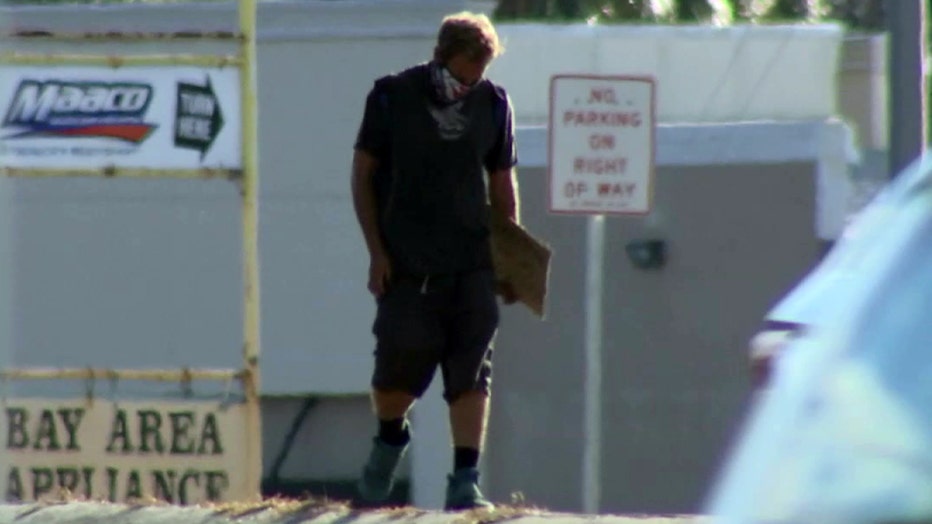Panhandlers, drivers in Pasco County subject to fines under new law
NEW PORT RICHEY, Fla. - A new ordinance in Pasco County lays out new rules for pedestrians and drivers, in an effort to crack down on panhandling. County commissioners say people asking for donations are creating safety issues, so now both groups could face hefty fines if they don't abide.
Anyone who's driven on U.S. 19 in New Port Richey has likely seen panhandlers in the median or in the midst of traffic.
"We've had people out in the right-of-way get hit, run over and killed. Sometimes they'll bring their kids, they bring their dog, they bring their bike. It's a dangerous situation," Pasco Board of County Commissioners Vice Chair Jake Mariano said.
At the commission's latest meeting, all five members voted unanimously to approve a new ordinance known as the Dangerous Use of Public Rights-of-Way law. It makes it illegal for pedestrians to stand in medians and for drivers to interact with them.
"For the first time, we have a situation where we have an enforceable ordinance, not only for the person who could be in the right-of-way, but also someone who's transacting business with that same person," Mariano said.

He added that the county faced difficulties enforcing the previous roadway solicitation ordinance.
Citations were paused last February after a federal judge ruled in favor of a homeless man in St. Johns County who was arrested while asking for help. The ruling found that panhandling and begging is a protected first amendment right, so for the last 12 months, attorneys for Pasco County and country commissioners have been re-working the ordinance to fall in line with the law.
"It's different than the one before. We feel it's very enforceable. Lee County had implemented it first. I looked at it, I saw it, I read it, went over with our attorneys. They thought it was enforceable. We just had to do some research on it a little bit more. And a few months later, we now have the ordinance that has been passed unanimously," Mariano said.
For the next 30 days, code enforcement officers will conduct a public education campaign to let people know the rules are changing. They will hand out flyers to anyone who's violating the ordinance. Following the grace period, offenders could face fines up $500.


